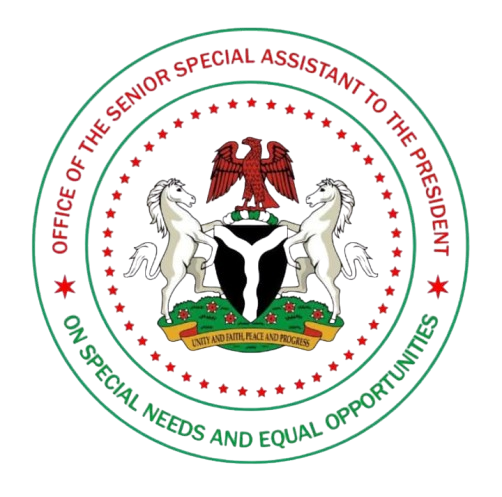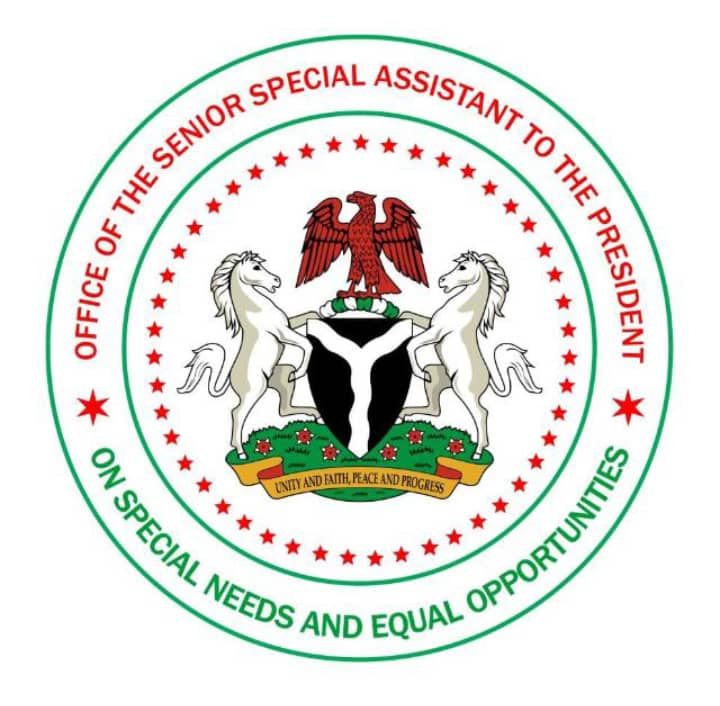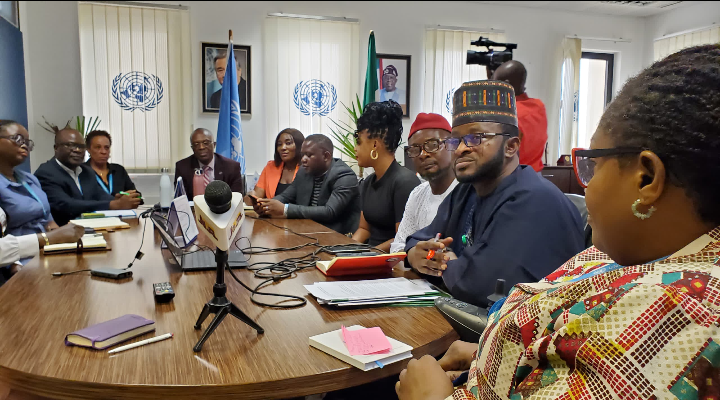By Lanre Oloyede
In a significant move to deepen disability inclusion and strengthen Nigeria’s commitment to international best practices, the Senior Special Assistant to the President on Special Needs and Equal Opportunities, Hon. Mohammed Abba Isa, on Tuesday held a high-level meeting with the United Nations Resident Coordinator in Nigeria, Mr. Mohammed Fall, at the UN House in Abuja.
The meeting brought together representatives from several UN agencies, including UNESCO, WHO, UNFPA, and the Office of the High Commissioner for Human Rights, as well as civil society leaders and disability advocates.

The meeting focused on aligning Nigeria’s disability policies with global best practices, fast-tracking the implementation of the National Disability Act, and mobilizing UN agency support to empower Persons With Disabilities (PWDs) and other vulnerable groups.
In his welcome address, UN Resident Coordinator, Mohammed Fall, emphasized the centrality of inclusion to the UN’s mandate, stating, “Inclusion is not just a principle for us—it is embedded in all our programming.

He said the Sustainable Development Goals (SDGs) are grounded in the promise of leaving no one behind, and that begins with persons with disabilities.”
Mr Fall also introduced Judith Ekaete Umoh, the newly appointed Inclusion Coordinator at the UN Resident Coordinator’s Office, describing her as a vital asset to advancing the UN’s inclusion agenda in Nigeria.

Mr. Fall reaffirmed the UN’s commitment to inclusion, stating that it is a core pillar of the UN’s mandate and Sustainable Development Goals (SDGs). He stressed the importance of reliable data, subnational policy implementation, and institutional support to achieve meaningful impact.
In his remarks, Hon. Mohammed Abba Isa outlined the mandate given to him by President Bola Ahmed Tinubu under the Renewed Hope Agenda, which includes ensuring that federal and subnational governments, development partners, and civil society organizations integrate the rights and needs of Persons With Disabilities (PWDs) into their policies, plans, and programs.
Hon. Abba Isa highlighted key achievements of his office, including the launch of the Disability Inclusion Governors Connect Program and the Beyond Disability Project, which aims to generate over 36,000 job opportunities for PWDs across Nigeria. He also acknowledged the establishment of a Presidential Task Force for the full implementation of the National Disability Act.

“The era of implementation is here, We seek effective collaboration with UN agencies to accelerate inclusive development and fulfill Nigeria’s global commitments.
“Since my appointment on November 9, 2023, we have taken bold steps to mainstream disability inclusion. Notably, the President approved the establishment of a Presidential Task Force for the implementation of the National Disability Act, marking a new era of action and accountability,” he said.

The Senior presidential aide stressed the importance of inter-agency collaboration to drive implementation and cited the Disability Inclusion Governors Connect Program as a key initiative by his office. The program, which was flagged off by Lagos State Governor Babajide Sanwo-Olu, aims to engage all 36 state governors, encourage domestication of the National Disability Act, and promote inclusive governance at subnational levels.
“So far, 20 states have domesticated the Act, with 16 yet to do so. We are intensifying advocacy efforts in these states and seek the UN’s support to bridge awareness gaps and foster compliance,” he added.

The SSA also highlighted the Beyond Disability Project, a legacy initiative launched by President Tinubu in July 2024. Designed to unlock the potential of PWDs through talent development and mentoring, the project aims to create over 36,000 job opportunities across Nigeria. “Not all PWDs have access to formal education, but they have immense God-given talents. All they need is a platform,” he said.
Mr. Fall, in his response, praised Nigeria’s leadership in promoting inclusion and its commitment at global forums like the Global Disability Summit (GDS).

However, he cautioned that effective implementation must be backed by reliable data. “Too often, we rely on proxies and estimates. Real impact requires authentic, disaggregated data. Without it, we cannot design or track meaningful interventions,” Fall noted.
He called for collaboration with key UN agencies such as WHO, UNICEF, UNESCO, and UNFPA to deliver on Nigeria’s disability commitments and offered the support of the UN Coordination Office in aligning federal programs with global standards.

Fall also acknowledged the global funding crisis affecting development work, urging national governments to increase investments in inclusion.

Judith Ekaete Umoh, Inclusion Coordinator at the UN RC’s Office, encouraged the SSA’s office to leverage commitments made at the GDS as strategic entry points for collaboration.
“Let’s work with the SDG and CRPD frameworks. Focus on actionable commitments in health, education, and employment. Agencies like WHO and UNESCO can help us implement them effectively,” she advised.
She also recommended adopting the Washington Group of Questions to generate standardized disability data.

Dr. Walter Kazadi Mulombo, WHO Country Representative, emphasized the importance of inclusive employment policies and the need to integrate disability indicators into national social protection registries.
“If we don’t have metrics showing how many PWDs are lifted out of poverty, then we’re not tracking progress,” he said, while advocating for disability employment quotas and better monitoring tools.

Lanre Oloyede, Director of Media and Communications at the Office of the SSA, reinforced the message that “disability is a humanitarian and developmental issue,” noting the strong correlation between disability and poverty. He stressed the urgency of UN collaboration to dismantle systemic barriers.

Echoing these sentiments, Queen Irene Onwuka, founder of the Queen Irene Onwuka Foundation, lamented the widespread discrimination faced by PWDs, particularly in employment. “It’s not about competence. PWDs are often sidelined due to prejudice, not lack of ability,” she said.

Rodstick Steven Eze, National Coordinator of the Beyond Disability Project, emphasized the importance of individualized data in designing solutions. “Trying to empower PWDs without accurate data is like a doctor treating a patient without diagnosis. Our office has developed a Disability Database App to begin addressing this gap,” he said.

In her vote of thanks, Barr. Lilian Odinka, Director Special Duties to the SSA commended the UN Resident Coordinator and his entire team for the warm reception while assuring that the office of the SSA is ever ready for collaboration when called upon in order to accelerate the implementation of the National Disability Act.

The meeting concluded with mutual commitment to foster strategic collaboration and accelerate inclusive development in Nigeria. The UN pledged its continued support in helping the Nigerian government fulfill its national and global disability obligations, with follow-up technical engagements already planned.



We are supporting this movement collaboration on disability under the office of SSAP, To the president on disability matter in Nigeria.
thak you sir.